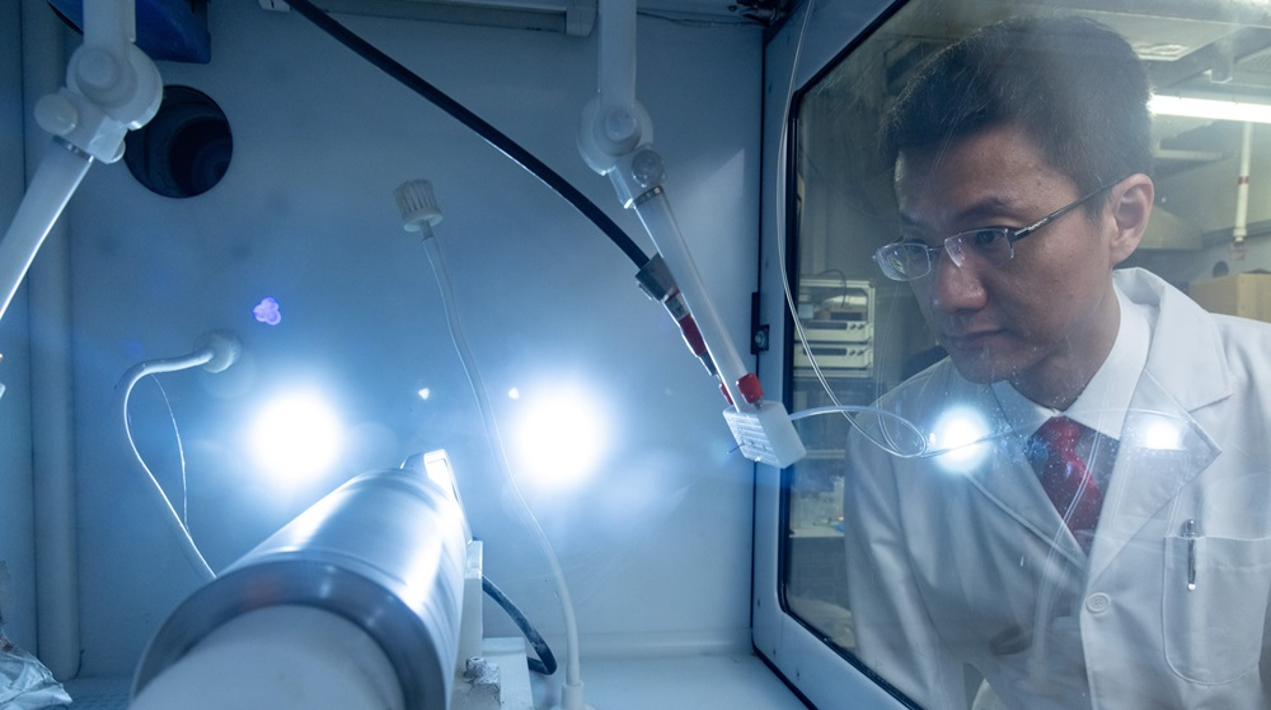
|
Getting your Trinity Audio player ready...
|
In the realm of technology and innovation, a growing prevalence of electronic devices designed to be attached to the skin or implanted within the human body is being witnessed. These “implantable bioelectronics” hold immense potential for various applications, ranging from advanced medical technology to the burgeoning field of augmented reality.
A team of researchers, led by The Hong Kong Polytechnic University (PolyU), has made significant strides in this area with a groundbreaking study titled “Wafer-patterned, permeable, and stretchable liquid metal microelectrodes for implantable bioelectronics with chronic biocompatibility,” which was published in Science Advances.
Compared to traditional electronics, materials required for wearable or implantable bio-electronic technology demand unique attributes that are challenging to combine. They must possess qualities like flexibility, softness, and permeability to coexist within the human body comfortably, devoid of any discomfort or harm to the user. Simultaneously, like everyday household gadgets, bioelectronics relies on electrodes that exhibit exceptional electrical conductivity and the ability to be intricately patterned into microscale circuitry.
Under the guidance of Prof. Zijian ZHENG, Chair Professor of Soft Materials and Devices and Professor of the Department of Applied Biology and Chemical Technology, a multidisciplinary research team from PolyU, in collaboration with experts from the City University of Hong Kong and the Hong Kong Centre for Cerebro-Cardiovascular Health Engineering, has surmounted several technical challenges to propel wearable technology forward. They have devised a method to produce extraordinarily soft, stretchable, and permeable electrodes tailor-made for implantable bioelectronics.
The pivotal step in this fabrication process entails electrospinning a fibrous polymer onto silver (Ag) micropatterns, resulting in an array of liquid metal microelectrodes (μLMEs) that can be patterned at an ultrahigh density, surpassing previous achievements by thousands of times—up to 75,500 electrodes per square centimetre—with the added benefit of long-term biocompatibility. These μLMEs can be comfortably worn on human skin, and their applicability has been demonstrated in animal brain monitoring.
Previously, biocompatible electronics were constructed on porous elastomers, but their porosity and roughness hindered patterning resolution and electrode density. By employing photolithography to deposit electronic circuitry onto fibrous polymer substrates, the team successfully overcame this hurdle, resulting in μLMEs that mimic the softness of biological tissue, maintain high conductivity even under severe strain, and exhibit long-term biocompatibility.
The conductive component of these μLMEs is a liquid metal alloy known as eutectic gallium indium (EGaIn), chosen for its low melting temperature and consistent conductivity under extreme strain, while also being soft and highly biocompatible.
This innovative fabrication process entails depositing EGaIn circuitry patterns onto an electrospun, permeable “fibre mat” of the polymer poly (styrene-block-butadiene-block-styrene), resulting in soft, stretchable electronics suitable for comfortable wear and implantation.
The concept of a super-elastic fibre mat, initially developed by Prof. Zheng’s team in 2021, has been incorporated into the newly developed μLMEs to ensure complete photolithographic transfer of electrode micropatterns from the Ag template, as opposed to the partial transfer achieved with impermeable substrates.
In addition to their softness, liquid permeability, and air permeability, μLMEs are highly stretchable, and their electrical resistance experiences only minor increases after repeated stretching and release cycles under high strain. When applied to human skin, an electronic patch constructed from μLMEs leaves minimal or no residue under pressure. This property holds great promise for wearable electronics, which are expected to find extensive applications in physiological monitoring, medical diagnosis, and interactive technology.
Most notably, the soft and stretchable nature of μLMEs makes them ideal for implantation in the neural interface for brain monitoring. The research team developed an array of μLMEs with small electrode diameters and high channel density for use as an electrocorticography signal receiver in a rat’s brain.
These μLMEs, possessing mechanical properties similar to brain tissue, adhere closely to the cortical surface and accurately record neural signals in vivo. In a notable demonstration, the μLME array reliably detected somatosensory evoked potentials in response to electrical stimuli applied to various parts of the rat’s body when it exhibited discernible brain waves characteristic of non-REM sleep.
As the Associate Director of RI-IWEAR and Lead Investigator at RISE, Prof. Zheng emphasised the significance of their achievement and stated that the use of both photolithography and pliable, permeable SBS fibre mats has made it possible to create microelectrodes boasting unparalleled resolution and biocompatibility. These microelectrodes, referred to as μLMEs, hold the promise to catalyse progress in the realms of medicine and augmented reality, surmounting past challenges in the fabrication of bioelectronics.
Supported by funding from the Research Grants Council’s Senior Research Fellow Scheme, PolyU, City University of Hong Kong, the National Natural Science Foundation of China, and InnoHK, the research team aims to further enhance the patterning resolution of μLMEs, building on their already remarkable accomplishments.
















